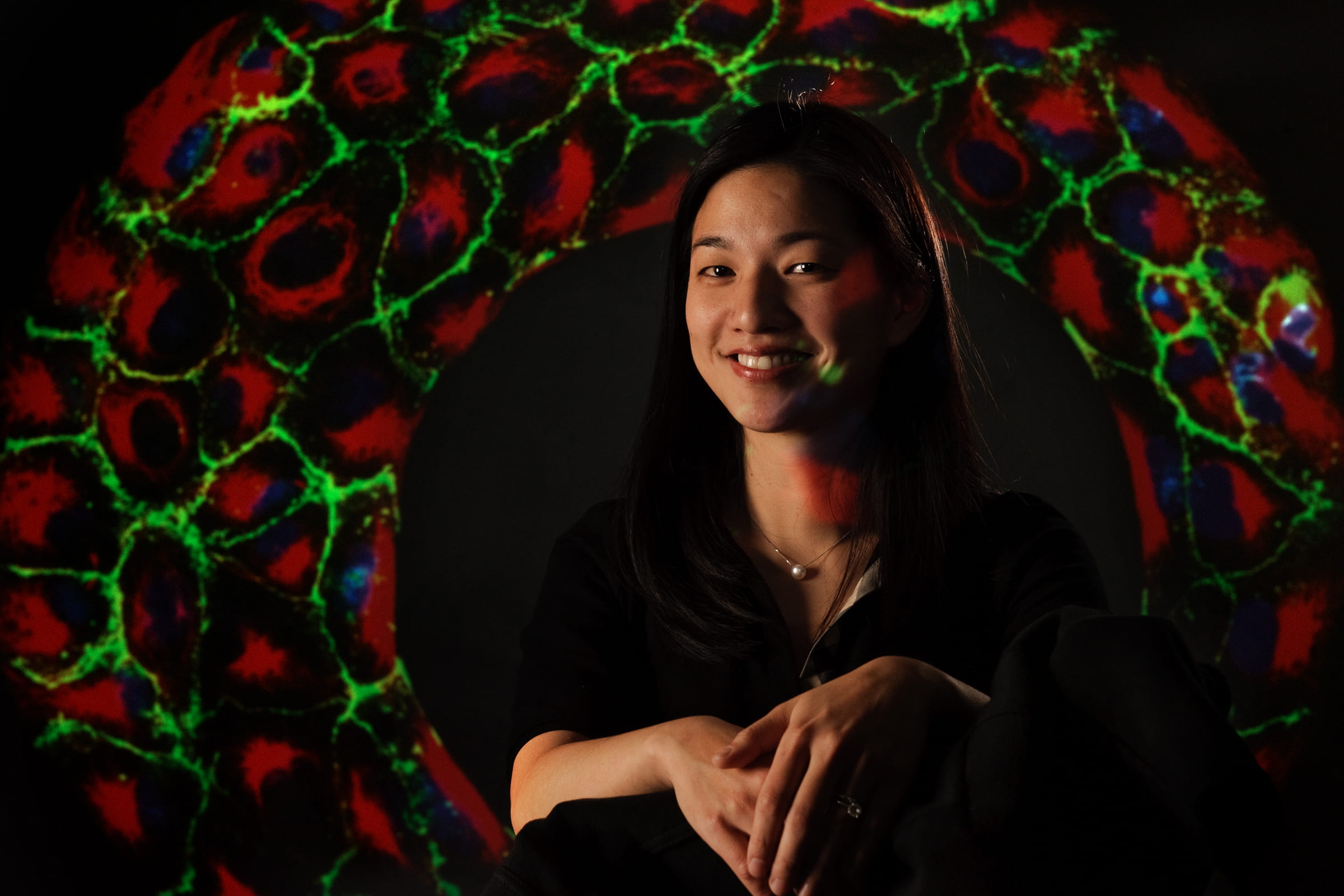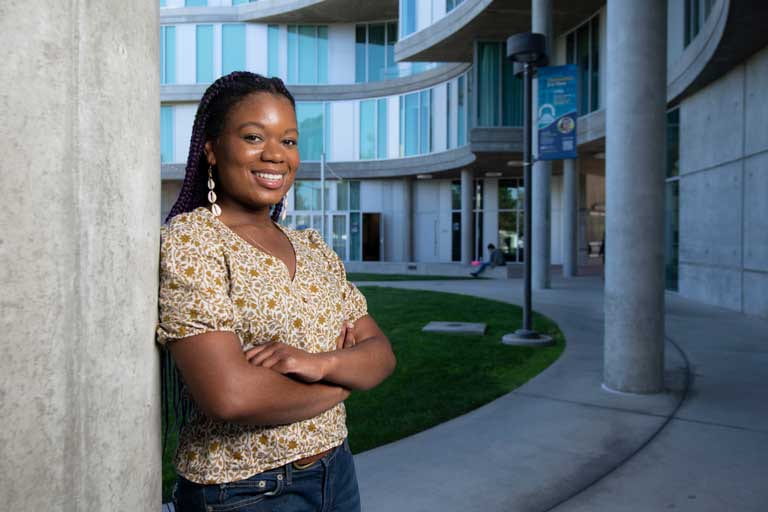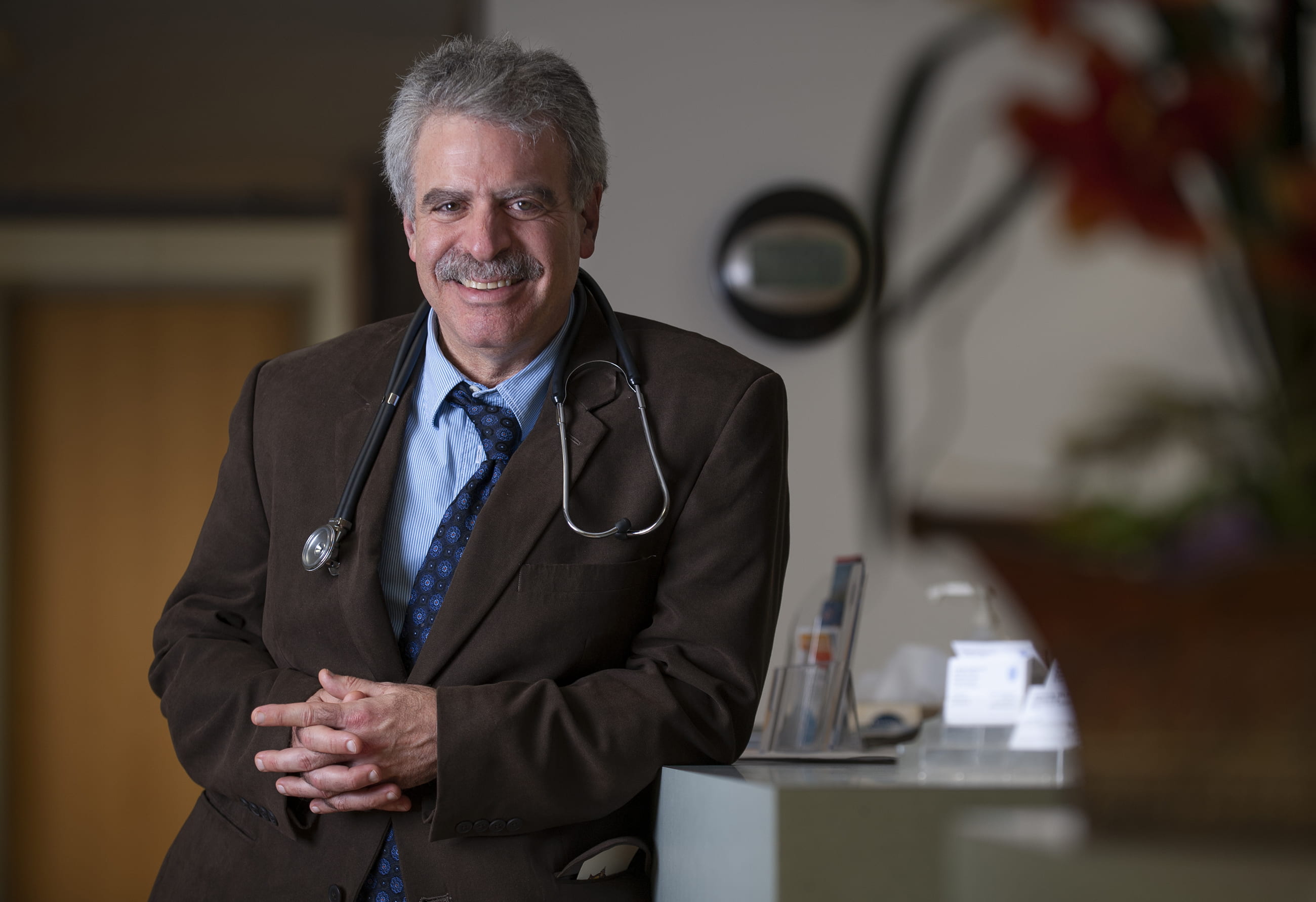Improving biomedical implants
UCI researcher Wendy Liu is trying to make the lifesaving devices less life-threatening.

Every year, more than half a million people in the United States undergo surgery for biomedical implants – like stents or heart valves – intended to save their lives, according to the American Heart Association. Unfortunately, these devices themselves can sometimes cause a potentially fatal immune system response.
To help prevent this, UC Irvine biomedical engineer Wendy Liu is researching safer coatings for implants that dissolve inside the body when their work is done.
“Sometimes patients react to biomedical implants the way a finger might react to a splinter: The tissue around it will get irritated and inflamed in response to the foreign object. This can cause a buildup of scar tissue and even treatment failure,” says Liu, an assistant professor. “We’re trying to make materials that will avoid that response and help improve patient outcomes.”
Many current cardiovascular disease implants remain permanently in a patient’s body and are constructed of metals that can trigger an immune system reaction. Others are made of biodegradable materials that can still cause significant inflammation, particularly when in contact with the bloodstream.
In her lab in UCI’s Edwards Lifesciences Center for Advanced Cardiovascular Technology, Liu is attempting to develop coatings that closely mimic surrounding tissue and don’t provoke such responses. With these coatings, a surgeon could insert a device like a stent – a mesh-wire tube placed in a coronary artery to keep it open – that would address the problem, enable tissue to heal and then melt away.
“The field of biomaterials has transitioned from trying to avoid the immune response to trying to manipulate the immune response for a favorable outcome,” says Dr. Steven George, biomedical engineering professor and founding director of the Edwards Lifesciences Center. “Dr. Liu’s work is pushing the boundary of our understanding and should have a significant impact on not only cardiovascular device implants, but our fundamental understanding of the immune system.”
Liu, who joined UCI in July, is working to fine-tune the properties of existing polymers – natural or synthetic compounds with a repeating chemical structure – and hydrogels – water-soluble networks of polymer chains.
Since human tissue is composed primarily of water, hydrogels are similar to the natural cell environment and could be used to make implants more acceptable to the body. Liu is also creating new polymers that could someday replace metal as the material of choice for biomedical devices.
Peering into a powerful microscope, she monitors whether and how immune cells interact with these new materials by examining the proteins secreted by the cells. Ultimately, this will help her and other researchers better understand coronary illness and develop safer treatments.
“I entered biomedical research because I wanted to make a difference,” Liu says. “Almost everyone knows someone who suffers from cardiovascular disease, and if my work can improve the lives of those touched by this, it will be tremendously satisfying.”

